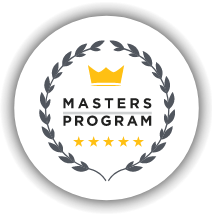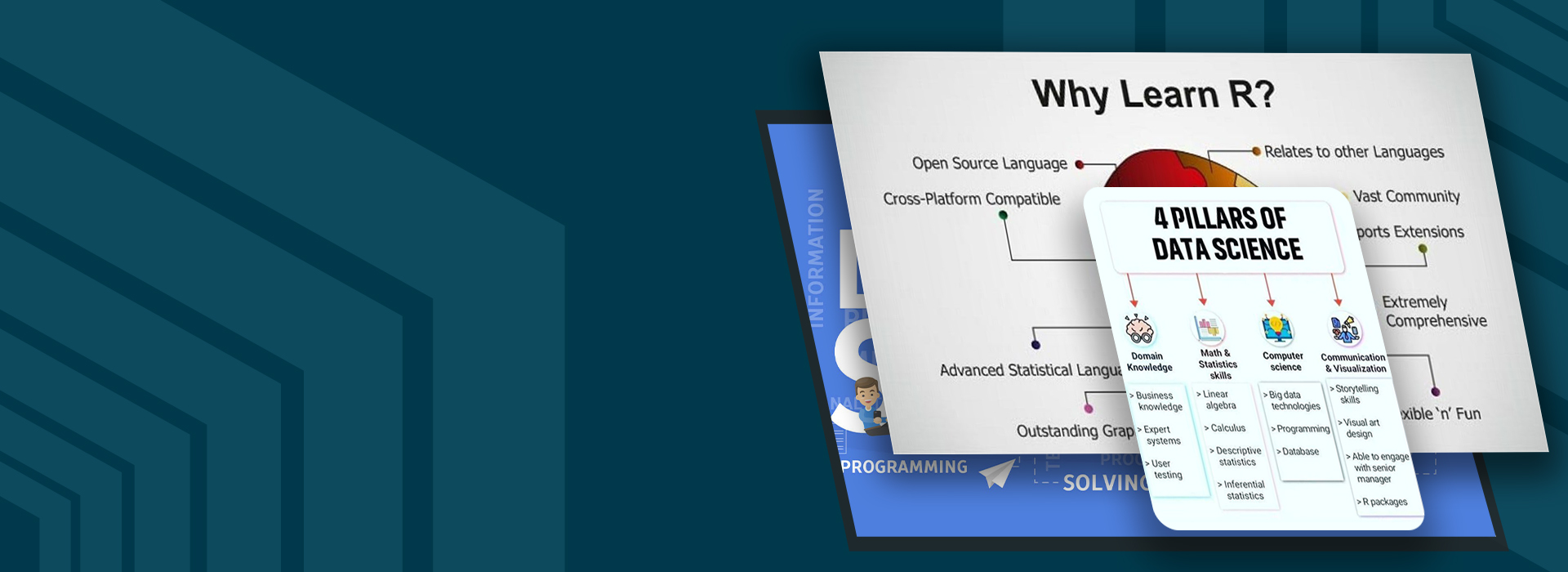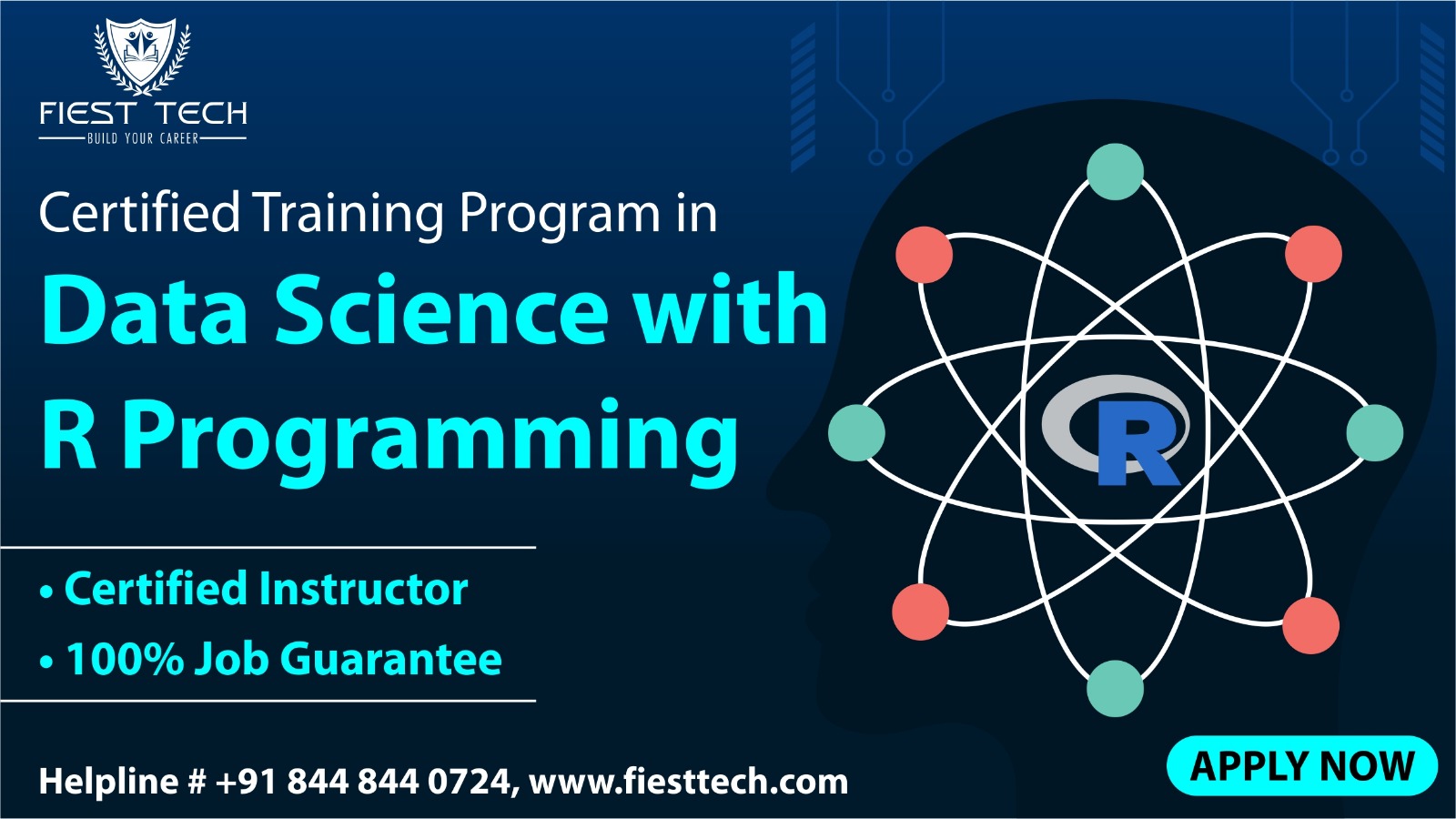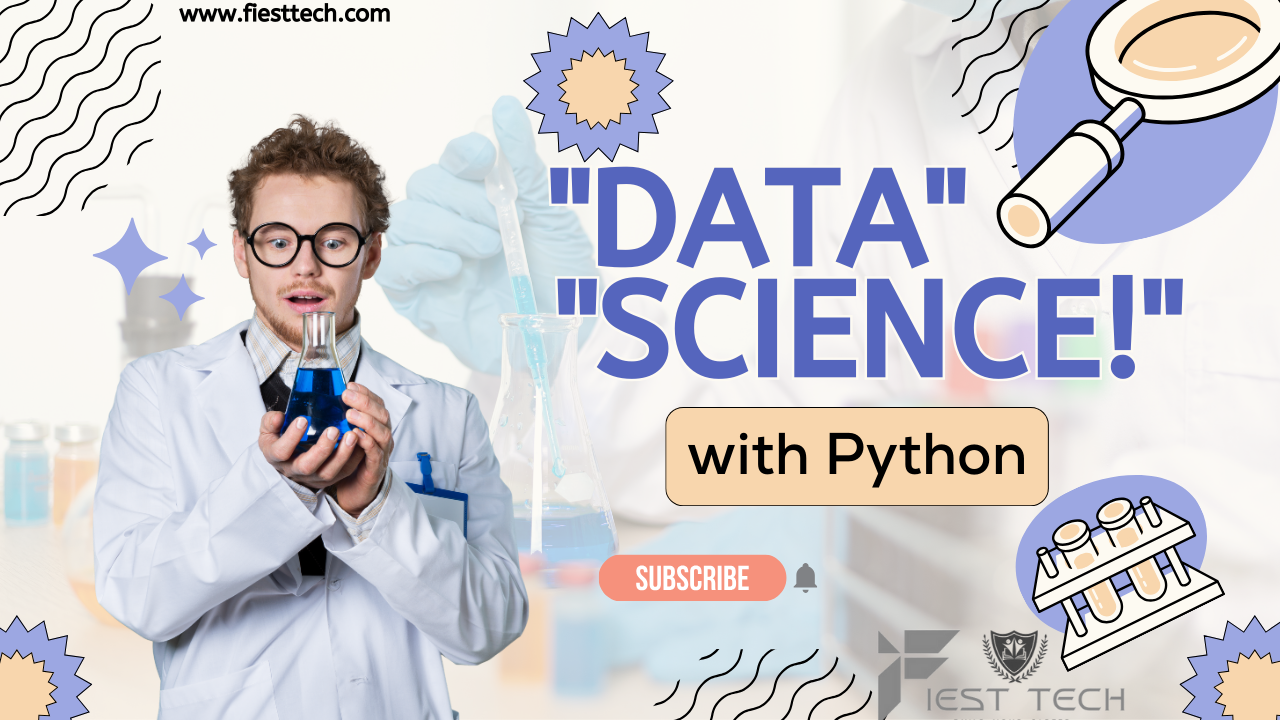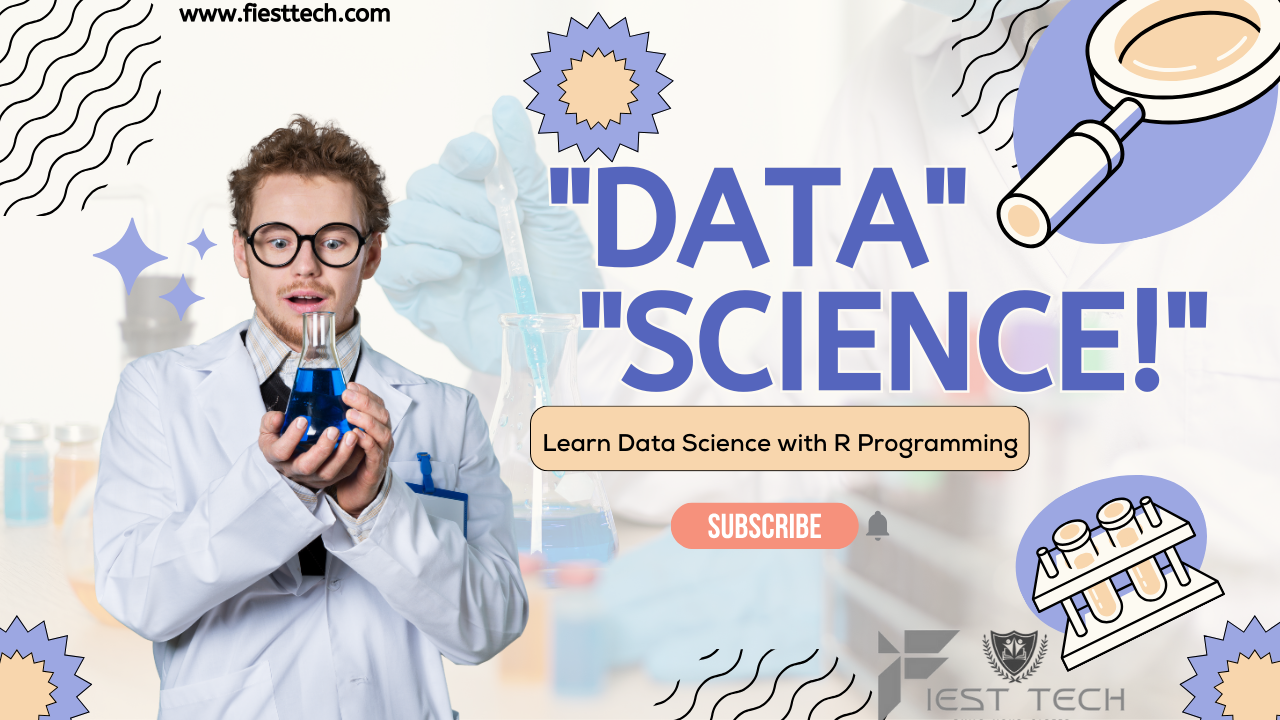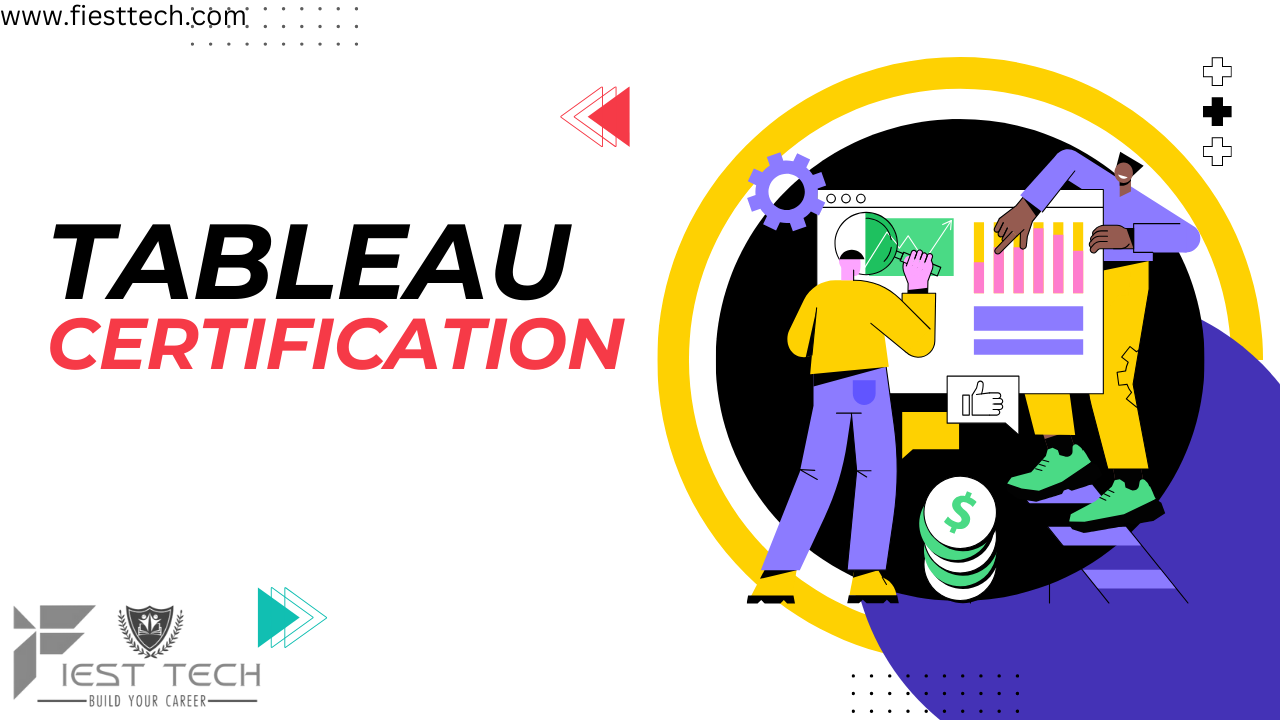R Certification Course Overview
The Data Science with R programming certification training covers data exploration, data visualization, predictive analytics, and descriptive analytics techniques with the R language. You will learn about R packages, how to import and export data in R, data structures in R, various statistical concepts, cluster analysis, and forecasting. Data Science with R offers a range of key features and capabilities that make it a popular choice for data analysis and machine learning tasks
R was originally designed for statistical analysis and provides a comprehensive set of statistical and graphical techniques. It's particularly well-suited for data exploration and hypothesis testing.
Data Science With R Programming Training Key Features
At Fiesttech, we value the trust of our patrons immensely. But, if you feel that this Data Science With R Programming Training does not meet your expectations, we offer a 7-day money-back guarantee. Just send us a refund request via email within 7 days of purchase and we will refund 100% of your payment, no questions asked!
- Statistical Inference
- Linear Algebra
- Advanced Data Visualization
- Time Series Analysis
- Machine Learning Algorithms
- Unsupervised Learning
- Natural Language Processing (NLP)
- Data Cleaning and Preprocessing
- Lifetime access to self-paced learning
Skills Covered
- Business analytics
- R programming and its packages
- Data structures and data visualization
- Apply functions and DPLYR function
- Graphics in R for data visualization
- Hypothesis testing
- Apriori algorithm
- Model Interpretability
- Big Data Integration
- Optimization Techniques
- kmeans and DBSCAN clustering
Benefits
The Big Data Analytics market is expected to reach $40.6 billion by 2023, at a growth rate of 29.7-percent. Randstad reports that pay hikes in the analytics industry are 50-percent higher than the IT industry. A career in Data Science with R training can open up a wide range of exciting and lucrative opportunities. Data science skills are in high demand across various industries due to the growing importance of data-driven decision-making
Annual Salary
Hiring Companies
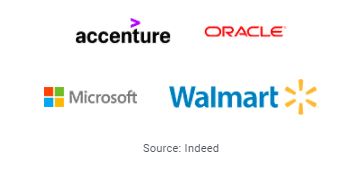
Annual Salary
Hiring Companies
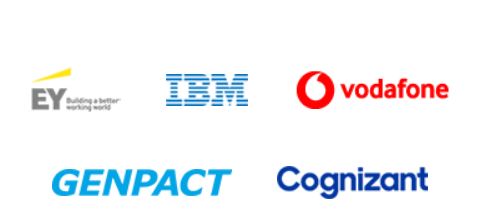
GO AT YOUR OWN PACE
Training Options
Explore all of our training options and pick your suitable ones to enroll and start learning with us! We ensure that you will never regret it!
R Certification Course Curriculum
Eligibility
This Data Science with R certification training is beneficial for all aspiring data scientists including, IT professionals or software developers looking to make a career switch into Data analytics, professionals working in data and business analysis, graduates wishing to build a career in Data Science, and experienced professionals willing to harness Data Science in their fields.
Read More
Pre-requisites
There are no prerequisites for this Data Science with R certification course. If you are a beginner in Data Science, this is one of the best courses to start with.
Course Content
Live Course
Self Paced
-
4.01 - 2.001 Overview
02:11 -
4.02 - 2.002 Importance of R
01:21 -
4.03 - 2.003 Data Types and Variables in R
03:32 -
4.04 - 2.004 Operators in R
03:32 -
4.05 - 2.005 Conditional Statements in R
01:21 -
4.06 - 2.006 Loops in R
04:34 -
4.07 - 2.007 R script
07:28 -
4.08 - 2.008 Functions in R
03:32 -
4.09 - 2.009 Conclusion
02:11 -
4.10 - Knowledge Check
01:12
-
5.01 - 3.001 Overview
00:54 -
5.02 - 3.002 Identifying Data Structures
16:11 -
5.03 - 3.003 Demo Identifying Data Structures
15:00 -
5.04 - 3.004 Assigning Values to Data Structures
05:25 -
5.05 - 3.005 Data Manipulation
03:32 -
5.06 - 3.006 Demo Assigning values and applying functions
08:08 -
5.07 - 3.007 Conclusion
00:54 -
5.08 - Knowledge Check
02:11
-
8.01 - 6.001 Overview
01:12 -
8.02 - 6.002 Hypothesis Test
03:32 -
8.03 - 6.003 Parametric Test
14:32 -
8.04 - 6.004 Non-Parametric Test
08:08 -
8.05 - 6.005 Hypothesis Tests about Population Means
8:00 -
8.06 - 6.006 Hypothesis Tests about Population Variance
01:12 -
8.07 - 6.007 Hypothesis Tests about Population Proportions
01:12 -
8.08 - 6.008 Conclusion
00:54 -
8.09 - Knowledge Check
01:12
-
9.01 - 7.001 Overview
01:21 -
9.02 - 7.002 Introduction to Regression Analysis
02:35 -
9.03 - 7.003 Types of Regression Analysis Models
01:12 -
9.04 - 7.004 Linear Regression
08:08 -
9.05 - 7.005 Demo Simple Linear Regression
01:21 -
9.06 - 7.006 Non-Linear Regression
03:32 -
9.07 - 7.007 Demo Regression Analysis with Multiple Variables
13:21 -
9.08 - 7.008 Cross Validation
03:32 -
9.09 - 7.009 Non-Linear to Linear Models
05:44 -
9.10 - 7.010 Principal Component Analysis
03:32 -
9.11 - 7.011 Factor Analysis
02:32 -
9.12 - 7.012 Conclusion
01:12 -
9.13 - Knowledge Check
00:54
-
10.01 - 8.001 Overview
00:25 -
10.02 - 8.002 Classification and Its Types
02:32 -
10.03 - 8.003 Logistic Regression
03:32 -
10.04 - 8.004 Support Vector Machines
04:34 -
10.05 - 8.005 Demo Support Vector Machines
11:10 -
10.06 - 8.006 K-Nearest Neighbours
02:11 -
10.07 - 8.007 Naive Bayes Classifier
02:35 -
10.08 - 8.008 Demo Naive Bayes Classifier
09:00 -
10.09 - 8.009 Decision Tree Classification
09:21 -
10.10 - 8.010 Demo Decision Tree Classification
05:44 -
10.11 - 8.011 Random Forest Classification
03:32 -
10.12 - 8.012 Evaluating Classifier Models
02:45 -
10.13 - 8.013 Demo K-Fold Cross Validation
03:32 -
10.14 - 8.014 Conclusion
00:54 -
10.15 - Knowledge Check
00:54

Data Science With R Programming Training Exam & Certification
No, this R course is not officially accredited.
Yes, we provide 1 practice test as part of our Data Science with R course to help you prepare for the actual certification exam. You can try these free R Programming practice questions to understand the type of tests that are part of the course curriculum.
Upon successful completion of the Data Science with R training and passing the exam, you will receive the certificate through our Learning Management System which you can download or share via email or Linkedin.
It will take about 40 hours to complete the R programming online course successfully.
You can re-attempt it immediately.
Bootcamp
Why Online Bootcamp
How to use R Programming Language for Data Manipulation
R provides powerful tools for data manipulation, including data cleaning, transformation, and merging
How R Programming helps in Data Visualization
R offers a wide range of packages for creating visualizations, including ggplot2, which is known for its grammar of graphics and flexibility.
Does R supports Machine Learning
R provides extensive support for machine learning tasks. Packages like caret, randomForest, and glmnet offer a range of algorithms for classification, regression, clustering, and dimensionality reduction.
Integration with Other Tools
R can seamlessly integrate with other programming languages and tools. For example, you can use R in conjunction with SQL databases, Apache Hadoop, Apache Spark, or Python. Additionally, R provides APIs to connect with external data sources
FAQS
Data Science With R Programming Training Course FAQs
R is a programming language and free software developed in 1993, made up of a collection of libraries architectured especially for data science. As a tool, R is considered to be clear and accessible.
Data Science is one of the popular career domains among professionals that offers high earning potential. It mostly comprises statistics and R is the bridging language of this domain and is widely used for data analysis. By learning R programming, you can enter the world of business analytics and data visualization. It is a must-have skill for all those aspiring to become a Data Scientist.
Anyone who is looking to get started in IT or willing to further their IT career should consider learning R. We at Fiest Tech have compiled an extensive content for Data Science beginners, along with supporting blogs and YouTube videos to help you understand the Data Science basics and importance of R in the dynamic field of data science.
R and Python are the top languages that professionals learn to start a career in Data Science. Both languages are powerful and have their own pros and cons. So, depending on which language is used for data science projects in your organization and what can help you in the long run, you can make a choice.
Fiest Tech also provides Data Science with Python course which builds a strong foundation in data science and imparts all the valuable skills that employers look for in a data scientist.
Related Programs
Data Science & Business Analytics Related Programs

